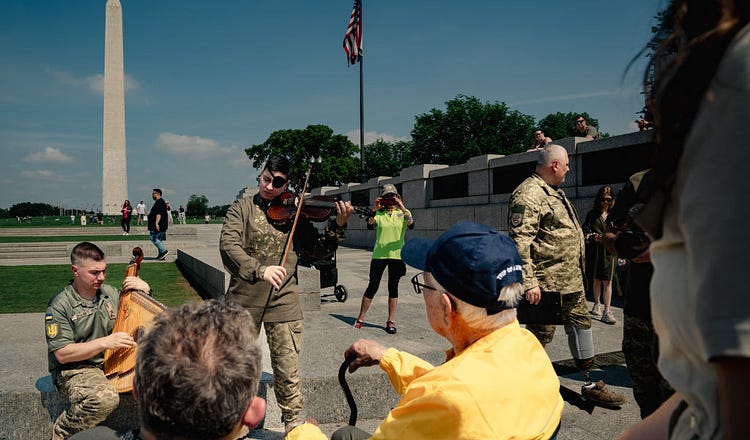The Musicians Playing for Ukraine

Bandura player Taras Stolyar and violinist Olha Rukavishnikova perform in Washington, D.C., on May 20, 2024. (Photo by Shuran Huang for The Washington Post via Getty Images)
They may be wounded, but these Ukrainian soldiers are still fighting for their country, touring America with their instruments to drum up support.
10
With the Washington Monument gleaming in the background, Ukrainian violinist Olha Rukavishnikova struck the first notes of her nation’s hymn of independence on May 20. It marked the beginning of a cultural mission. Rukavishnikova—wearing a Ukrainian military uniform and black eye patch to cover the latest in a series of battle wounds—has come to America…
Continue Reading The Free Press
To support our journalism, and unlock all of our investigative stories and provocative commentary about the world as it actually is, subscribe below.
$8.33/month
Billed as $100 yearly
$10/month
Billed as $10 monthly
Already have an account?
Sign In


